A well-functioning electrical system is the backbone of any commercial building. It powers everything from lights and computers to heavy machinery and other equipment necessary to keep your business running smoothly. However, just like a car, your electrical system needs regular checkups to stay safe and efficient. But what exactly does a commercial electrical inspection entail?
In this blog, we explain the entire commercial electrical inspection process from start to finish, so you’ll know exactly what to expect.
What Is a Commercial Electrical Inspection?
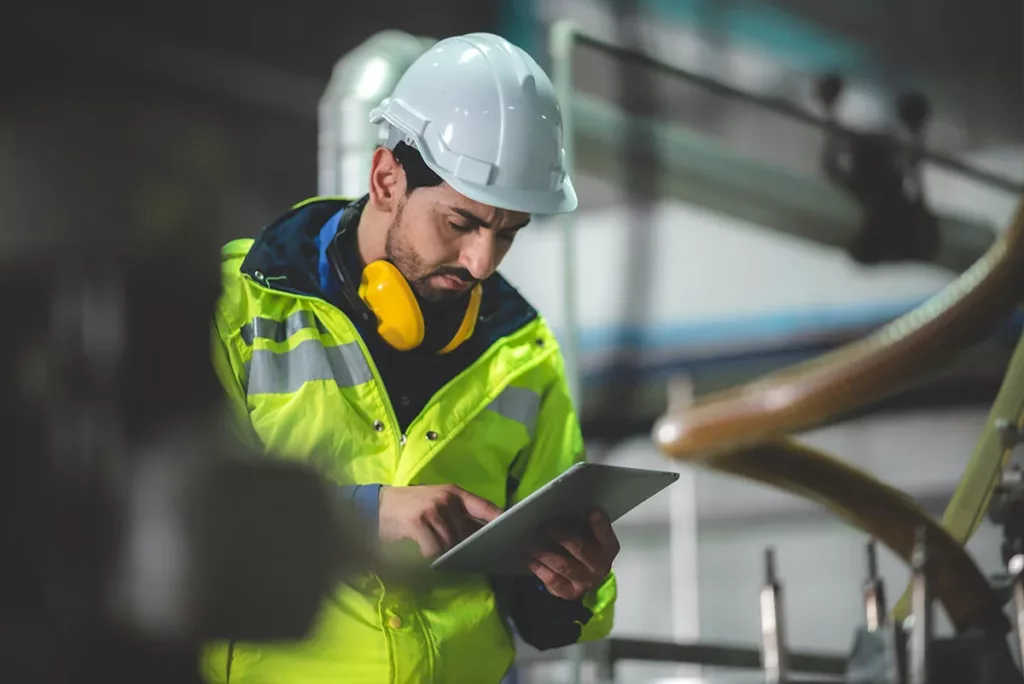
A commercial electrical inspection is a thorough evaluation of the electrical systems in a commercial building. A licensed electrician or electrical inspector carries this out to ensure everything is up to code and safe for use.
The main goal of a commercial electrical inspection is to identify any issues that could potentially pose a safety risk or lead to electrical failures, so they can be addressed proactively. This helps ensure the safety of the building’s occupants and protects property from potential electrical hazards.
How Often Should You Schedule a Commercial Electrical Inspection?
Every business should have at least one annual commercial electrical inspection to ensure safety and compliance.
Each county has unique regulations regarding how often commercial inspections should be conducted, so it’s important to review local guidelines to ensure your business stays compliant. This helps you avoid potential fines and other unwanted non-compliance penalties.
Although annual checks are recommended, some situations may warrant the need for an immediate inspection, such as:
- Any time new electrical systems are installed
- After power outages
- If you notice any immediate issues such as flickering lights, burning smells, sparks coming from electrical outlets, or unusual buzzing sounds
If you suspect any electrical issues, it’s always best to schedule an inspection just to be safe.
What Will a Commercial Electrical Inspector Check For?
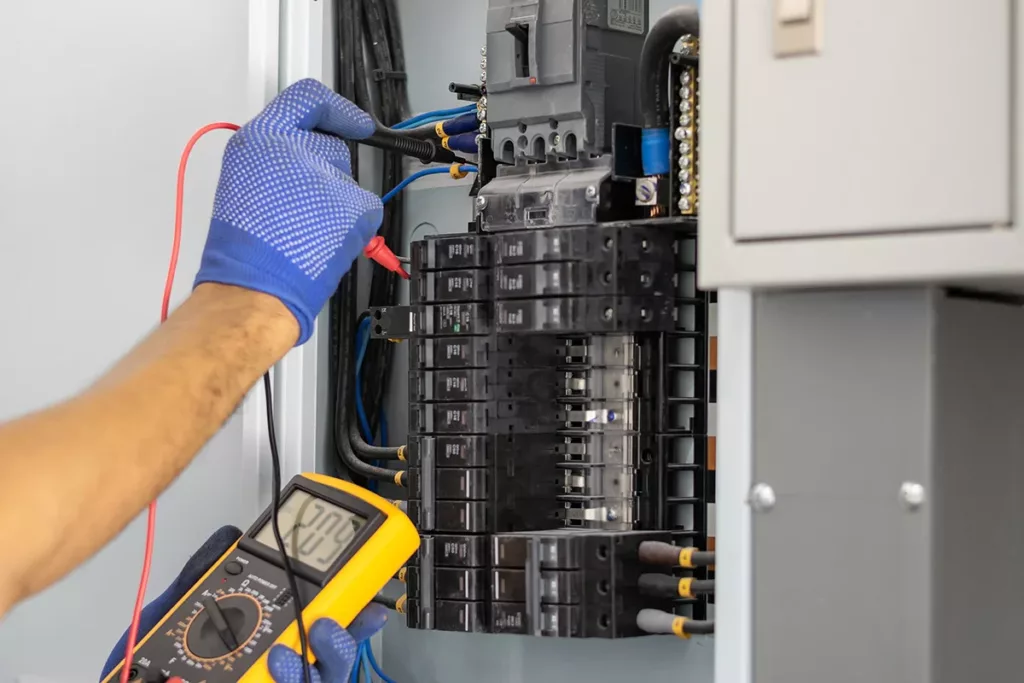
During a commercial electrical inspection, the inspector will primarily focus on ensuring safety and compliance with electrical codes. They will check your business’s electrical work and refer to the National Electric Code (NEC), which outlines safety guidelines that all electrical systems must follow. It’s designed to lower the risk of electrical injuries, protect equipment and property from costly damage, and ensure everything is functioning correctly.
Here is a breakdown of what a commercial electrical inspector may check for:
- Compliance with National Electrical Code and local regulations
- Damaged, loose, or outdated wiring
- Correct installation of lighting fixtures and emergency lighting
- Accurate labeling of electrical panels and circuits
- Proper closure of unused openings in electrical enclosures and boxes
- Contamination or damage to electrical equipment
- Secure mounting and adequate ventilation space for electrical equipment
- Proper grounding and bonding throughout the system
- GFCI (Ground Fault Circuit Interrupter) protection in wet locations and on circuits serving specific equipment
- Proper temperature ratings of electrical splices and terminations
The NEC outlines all these factors and more. While the specifics of every inspection depend on local and state regulations, there is always one primary goal at the center: verifying that all electrical components throughout the property are safe and compliant.
What Are the Steps Involved in a Commercial Electrical Inspection?
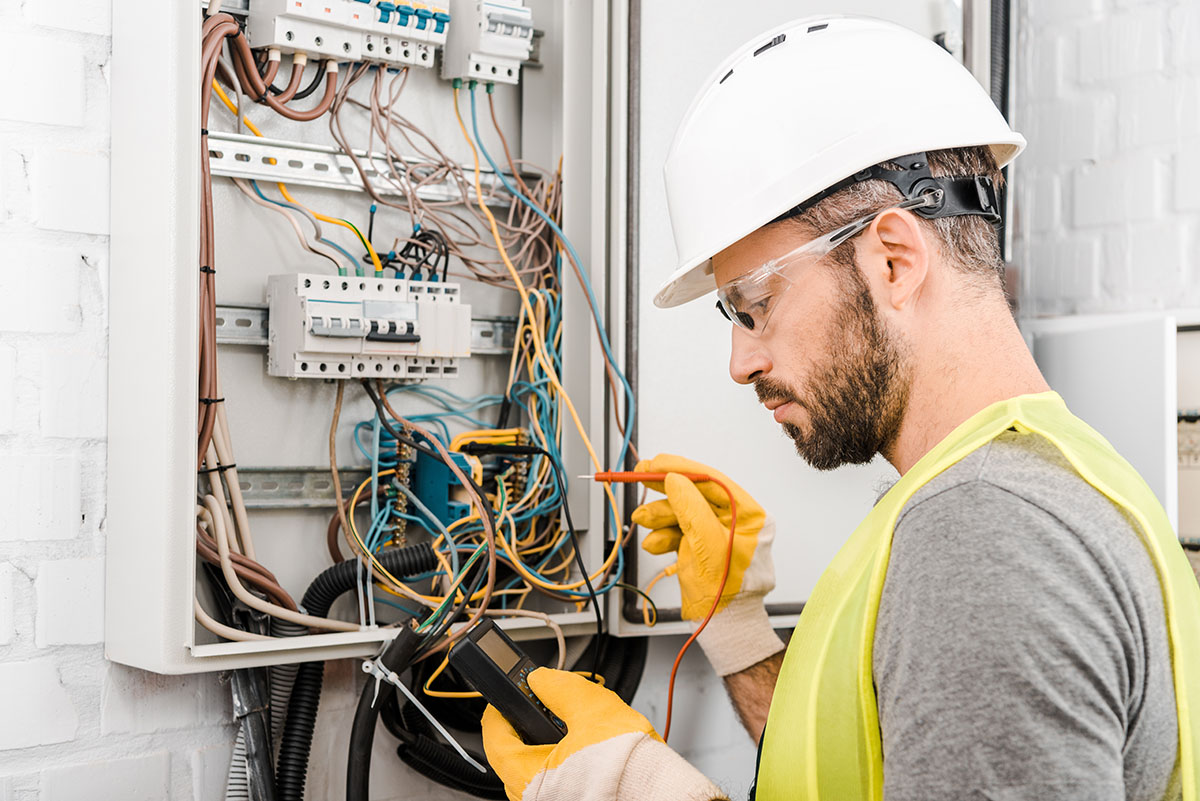
The steps involved in a commercial electrical inspection may vary depending on the building’s needs and industry. Below is a general outline of what to expect on the day of the inspection.
Visual Inspection of the Electrical System
The inspector will thoroughly examine all electrical components throughout the building, including panels, wires, conduits, outlets, lighting fixtures, and grounding systems. They will inspect the entire electrical system to gain a comprehensive understanding of what is functioning properly and what needs improvement.
Testing Electrical Components
The inspector may run tests to verify that everything is working correctly. This typically involves testing all circuit breakers in the panel to ensure they trip properly in the event of an overload or fault. The specific tests will vary depending on the size and type of building, the type of electrical equipment present, and local electrical code requirements.
Creating an Inspection Report
Once the inspection is complete, the inspector will document their findings in a report detailing any code violations or safety hazards. If any issues are identified, they will explain what should be corrected and may set a timeframe for completing the repairs.
Addressing Commercial Electrical Violations
If the inspection reveals any code violations or other concerns, a qualified electrician will need to address them as soon as possible. They will work with you to find practical solutions and ensure everything is compliant. Once these issues are addressed, a final re-inspection may be necessary.
The North Bay’s Trusted Commercial Electricians
Routine inspections help prevent electrical safety issues that disrupt your workflow and impact your bottom line. At Schafer Electric, our certified electricians have over a decade of experience providing comprehensive commercial electrical services in the North Bay. If you have any electrical concerns, we’ll help you find effective solutions so you can get your business back up and running in no time.
Don’t wait for a flicker to become a full-blown blackout. Contact us online or call (707)-545-3300 to request electrical services today.

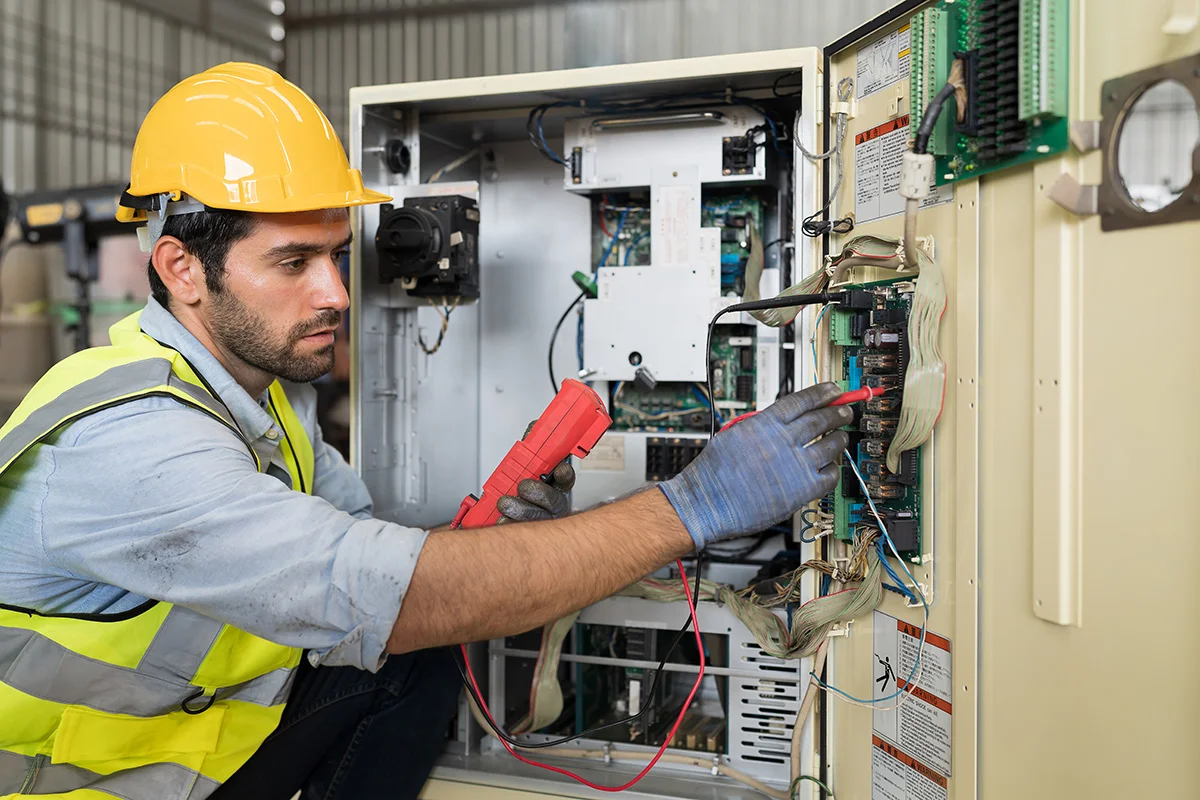
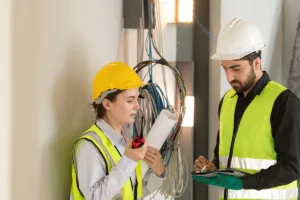
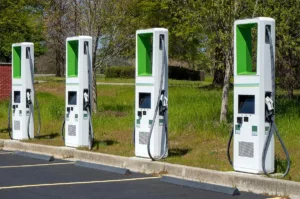

No comments yet. Add the first comment